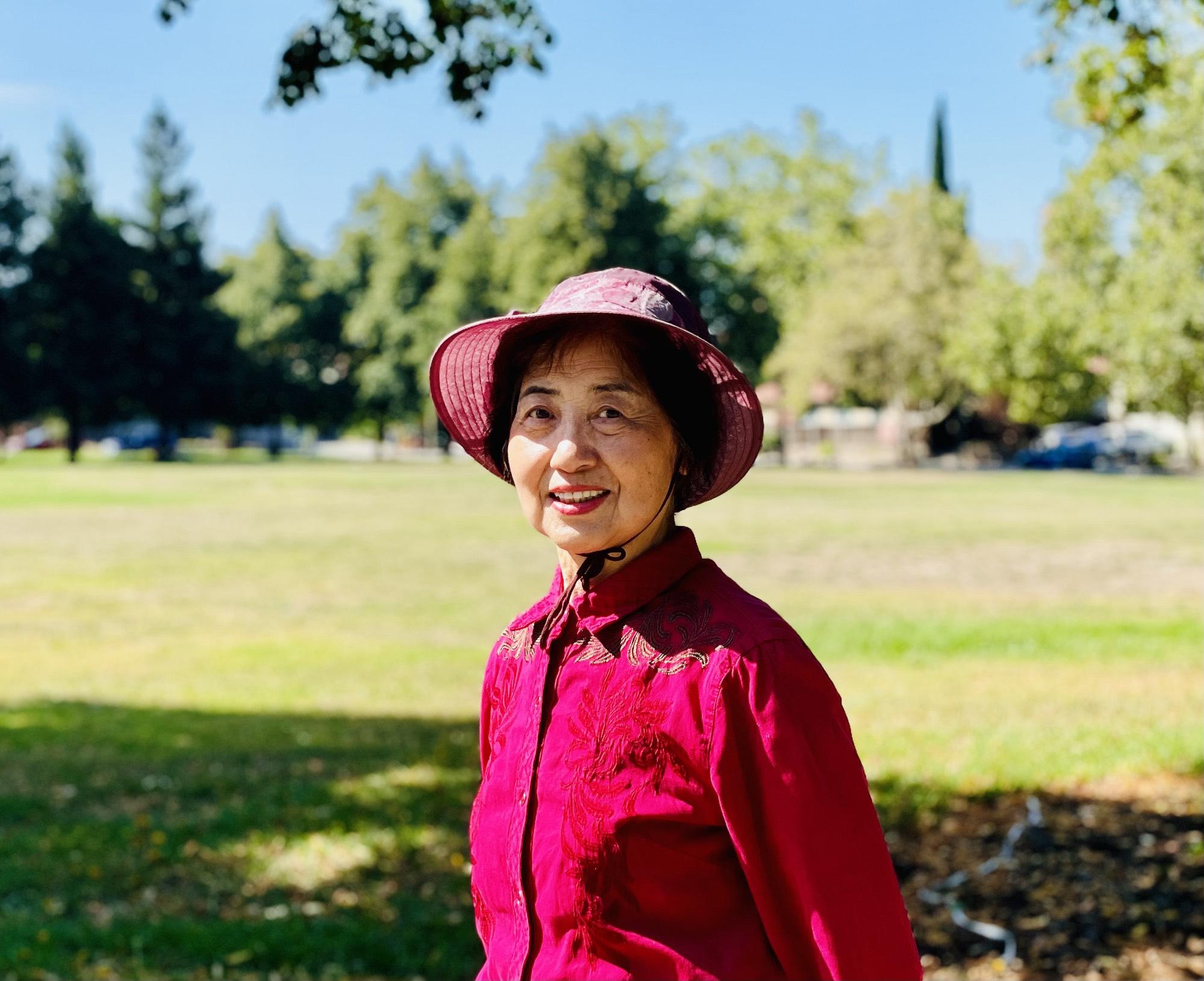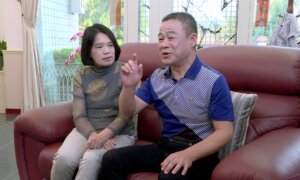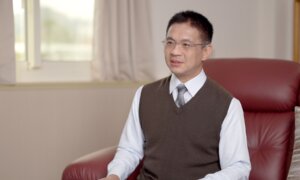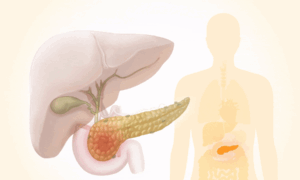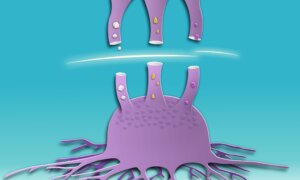Yang Li’s life was nearly cut short in her forties by metastatic cancer. Despite refusing further medical treatment, she has lived a vibrant and healthy life for the past 30 years. What did she experience that caused her to win the battle against a deadly cancer?
Yang, now 77, lives in San Jose, California. In her youth, she was a well-known Huangmei Opera (one of China’s five major opera genres) actress in Anhui, China, before transitioning to a career as a costume designer for the same opera. Since her teenage years, she battled numerous illnesses, including hepatitis A and B, coronary heart disease, chronic bronchitis, and chronic urinary tract infections. She was on so many medications that she was often referred to as a “walking medicine cabinet.”
In 1990, while 43-year-old Yang was working on a costume design, she suddenly began vomiting blood clots, which alarmed her greatly. She had been having intermittent upper abdominal pain, along with acidic vomiting that sometimes contained blood. Due to her busy work schedule, she had not undergone a comprehensive examination or treatment.
Later, she was diagnosed with advanced gastric adenocarcinoma (a type of stomach cancer). Doctors identified a tumor in her gastroesophageal junction, measuring 6.5 x 8 cm with a thickness of 2.5 cm. She underwent a subtotal gastrectomy and had 2 centimeters of her esophagus removed. Shortly afterward, she began chemotherapy, but within just three days, her condition deteriorated significantly, with symptoms including high fever, vomiting, hair loss, and a severe drop in both white and red blood cells. The doctors had no choice but to discontinue her treatment.
Cancer Metastasis Leads to Despair
At the end of 1993, Yang began experiencing pain in her right elbow. X-rays revealed a honeycomb-like appearance in the bone cavity of her elbow and forearm, indicating bone cancer. At that time, her overall health was very poor, with all her blood tests showing abnormal results. Her doctors were hesitant to proceed with chemotherapy, fearing that she might experience complications during the treatment.
In 1994, Yang developed new symptoms indicating nasopharyngeal cancer. A CT (computed tomography) scan revealed two tumors, each about the size of a soybean, in her left sinus.
When Yang’s doctor told her she had about three months to live she sighed and said, “It seems there is no need for further treatment.” She opted not to be hospitalized.
Once stomach cancer has metastasized to distant sites, the chances of survival become very slim. According to the American Cancer Society, the five-year relative survival rate for patients with distant stomach cancer metastasis is only seven percent.
A Journey to Wellness Through a Book
Shortly after returning home, Yang received a call from a friend, a well-known Huangmei opera actress from China, who asked for the return of a book she had lent to Yang’s husband, titled “Falun Gong, Revised Edition.”
Curious, Yang skimmed through the book, which introduced the practice of Falun Gong. Following the principles of truthfulness, compassion, and forbearance, Falun Gong consists of five sets of exercises, including meditation.
Yang wanted to learn Falun Gong and set up a meeting with her friend, but the friend declined to teach her due to Yang’s critical condition. “Falun Gong can improve health and fitness level, but it is not intended as a medical treatment,” her friend explained.
Yang found a newspaper on her friend’s desk that featured testimonials from Falun Gong practitioners. After reading it, she exclaimed, “Falun Gong is truly wonderful. I have to learn it.”
Moved by Yang’s determination, her friend gifted her a Falun Gong book. Yang read the book and learned the exercises by following the illustrations.
After practicing for several days, the pain in her right elbow began to ease, allowing her to sleep more comfortably. Soon, she was able to transition from a liquid diet to soft foods and gradually increase her intake. Remarkably, her body felt stronger and healthier.
A little over a month later, her elbow pain had completely disappeared, and she could eat normally—just like a healthy person. Before long, she was even able to prepare simple meals on her own.
A few months later, her health had not only improved significantly but her temperament had also changed for the better. She became much more tolerant and understanding, even with difficult neighbors, and developed harmonious relationships with friends and family.
In April 1996, she was invited by the friend who had introduced her to Falun Gong to join a group practice session.
The session took place in a large park near her home, and she vividly remembers that morning—spring was in full bloom—flowers were everywhere and a gentle breeze carried the scent of blossoms through the air. Around 70 to 80 practitioners attended, including many of her colleagues and friends from the arts and medical fields.
When she first began practicing, she felt as if she were being “hit” by energy when the meditation music started, and her body even trembled slightly, but it was not unpleasant. The practice site coordinator explained that this was due to the powerful collective energy of the group practice, which provided greater health benefits.
After about a month of practicing with the group, she was able to ride her bike to and from the practice site.
“That was the happiest time of my life! I truly experienced the joy of being free from illness, with a light and energetic body. My heart was filled with excitement and an indescribable sense of happiness. I could not stop smiling and often found myself humming songs on my way to and from practice,” she said.
By August of 1996, her health had improved significantly, and she resumed working.

A photo of Yang practicing in a park in San Jose, Aug. 3 (Courtesy of Yang Li)

A photo of Yang practicing in a park in San Jose, Aug. 3. (Courtesy of Yang Li)
Tumor Miraculously Falls Out
In early 1997, after a day of practice, the nasopharyngeal cancer symptoms on the left side of her face that had previously disappeared—numbness, tearing, a runny nose, and ear congestion—suddenly returned, along with a fever and body aches. The symptoms lasted two days.
On the third day, she felt a slight itch in her left nostril. She took a deep breath, and to her astonishment, the tumor in her left sinus dislodged itself through the nasal passage connected to her upper palate and fell into her mouth. When she spat it out, she saw that it was about the size of a small peanut and was quite hard.
Miraculously, as soon as the tumor fell out, all of her symptoms vanished completely.
Now at 77 years old, she said, “I am in good health and feel as energetic as I did in my fifties.”
The process of practicing was not always comfortable and easy.
When Yang first began meditating, her legs hurt intensely, and it took her a long time to be able to sit cross-legged properly. She persevered through the pain and gradually made progress, starting with a simple cross-legged position, then moving to a half-lotus, and finally, after nearly a year and a half, she managed to sit in the full lotus position.
Now, she rarely experiences leg pain while meditating. However, she does notice that when her legs do hurt, it is often because she has done something that does not align with the principles of truthfulness, compassion, and forbearance. After reflecting and correcting her actions, the pain goes away.
After nearly 30 years of practice, she consistently strives to align herself with the principles of truthfulness, compassion, and forbearance, regularly reflecting on her actions whenever conflicts arise.
“Falun Gong not only gave me a second chance at life, but it also taught me profound lessons about what it truly means to be a good person. I feel incredibly fortunate,” she said.

On June 1, Falun Gong practitioners were invited to join the Cherry Blossom Festival Grand Parade in the San Francisco Bay Area. The photo shows 77-year-old Yang (far right, front row) performing traditional Chinese folk art—waist drumming (yaogu)—with the Falun Gong drum team. (The Epoch Times)
Falun Gong May Alleviate Cancer, Extend Lifespan
An
observational study presented at the 2016 American Society of Clinical Oncology annual meeting indicated that practicing Falun Gong could prolong the survival of patients with terminal cancer and alleviate their symptoms. Researchers from Switzerland, Taiwan, the UK, and the United States observed 152 terminal cancer patients in China who practiced Falun Gong. As of the report date, 149 patients were still alive and in good health. Compared to the predicted survival period of 5.1 months, their survival period was prolonged to 56 months. Notably, patients’ quality of life also improved significantly.
A 2020 study involving more than 1,000 Taiwanese Falun Gong practitioners found that individuals with chronic conditions such as heart disease, diabetes, lung issues, and high blood pressure experienced a 70 percent to 89 percent improvement or recovery after practicing Falun Gong.



